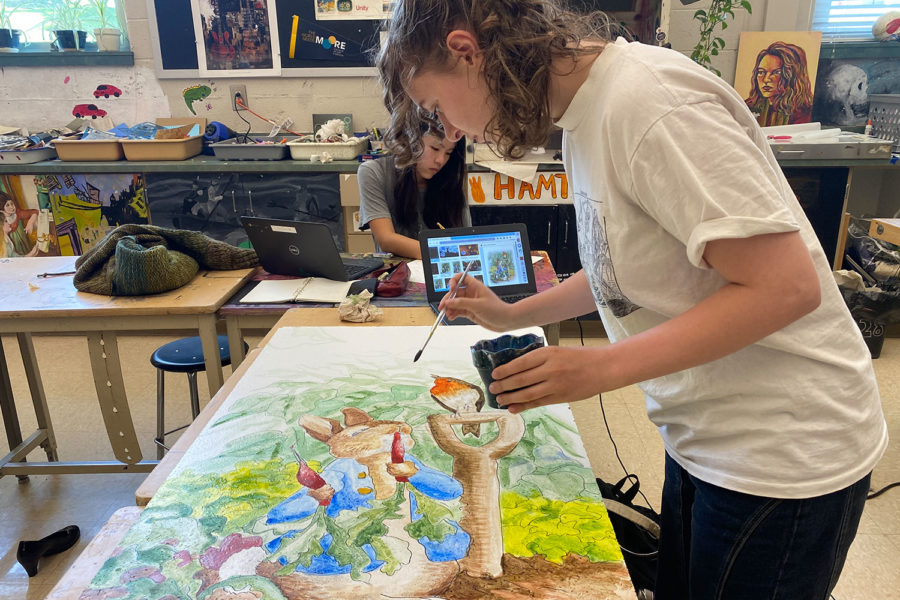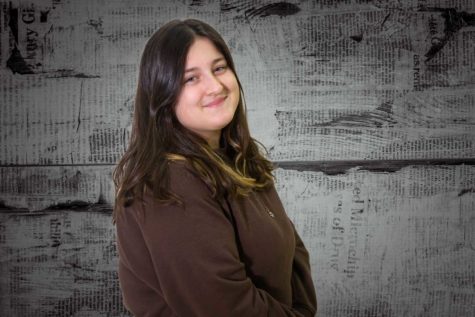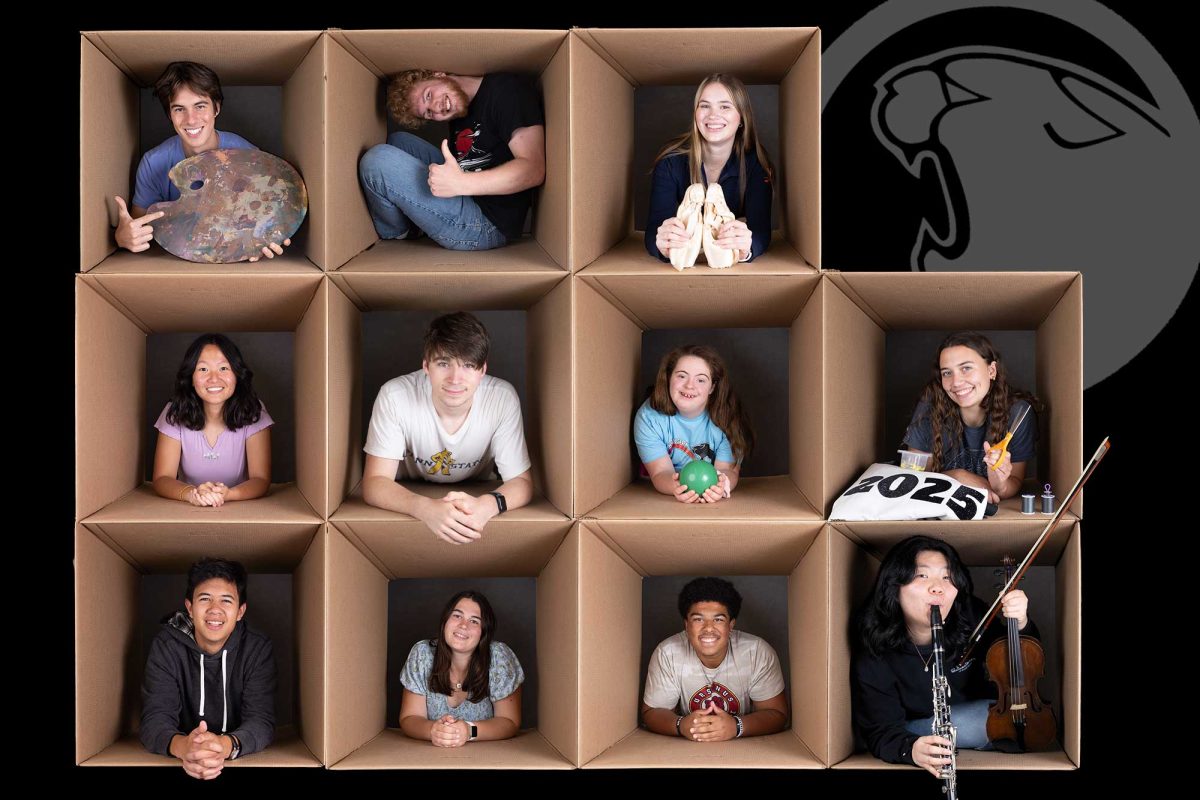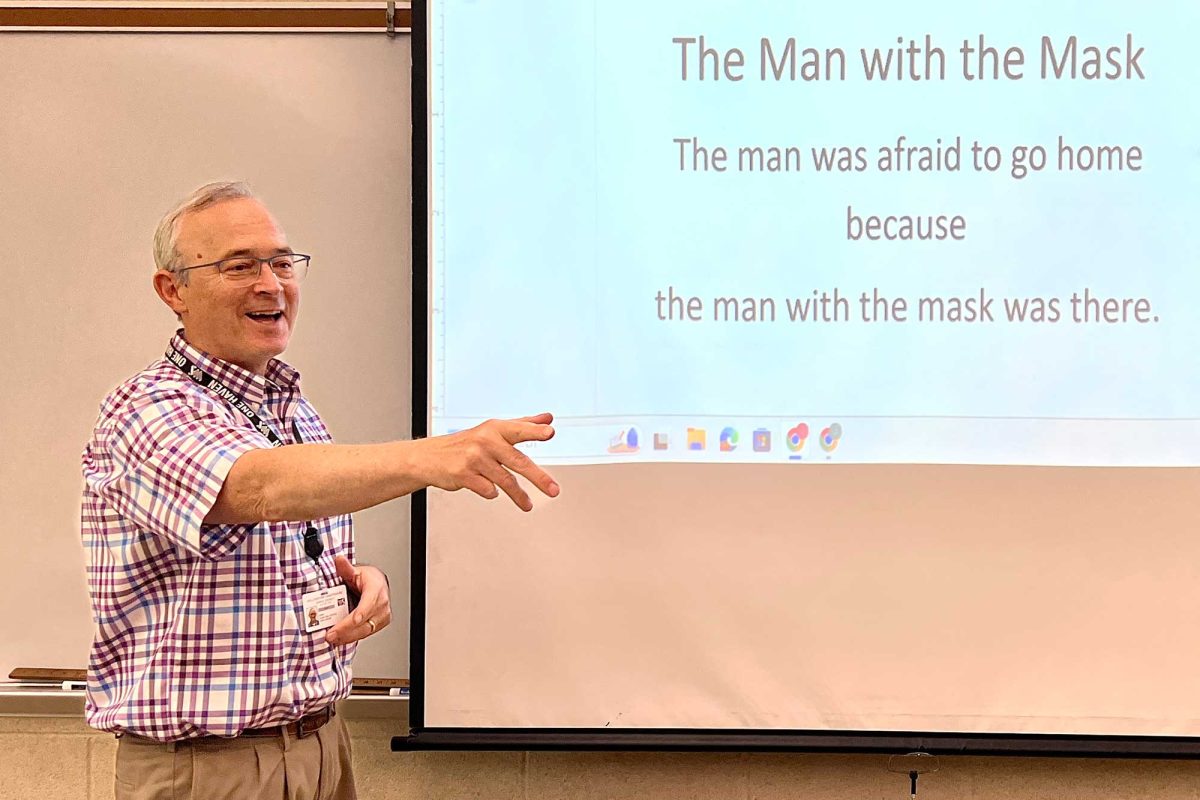While both fall and spring semesters have the same number of days, Advanced Placement (AP) courses in the spring have about a month less time to prepare for exams. AP exams are held in the first two weeks of May, leaving many AP students with up to four weeks after exams, before the end of the year.
When students aren’t studying for the exam, what’s left to work on? Different teachers choose to supplement the AP curriculum with new coursework and a variety of assignments that’ll grab the attention of the seniors counting down the days until graduation.
In math teacher Mrs. Beth Benzing’s AP Statistics class, she has introduced a new unit on Data Science where students use large data sets to create models using multiple variables.
“I feel like there’s a little gap in the AP Statistics curriculum where the students don’t work with big data, and data analytics is a big part of their future,” Benzing said.
For this unit, Benzing gives her students large amounts of data from colleges and universities. Students can handle variables such as graduation rates and average tuition on a scale not taught in the AP curriculum.
“Data analytics is just simply the movement of data, we are manipulating data and our students need to be exposed to this using large data sets,” Benzing said. “After the AP we are able to give them that opportunity.
Unlike AP Statistics, which happens in both the fall and spring semesters, social studies teacher Mr. Thomas Babcock expressed frustration towards having his AP US History courses during the spring. He feels that students in the spring are less prepared than those in the fall.
“Having [AP US History] in the spring, it’s only happened once and that was last year. We used to be a yearlong class, so when we redesigned our courses, it went from yearlong to half a year. That was difficult on its own, and then in the spring, it was impossible. I don’t know how other classes do it,” Babcock said.
During his spring semester class last year, Babcock only had about seven class days to teach each unit, so after the AP exam he urged his students to learn more about any topic they wanted to supplement.
“I try to do a research paper or presentation, a very large research component,” he said. “And the goal of that is, because you have to move so fast, I always tell them if there’s a topic you want to learn more about, you have a month to learn all you can about it.”
In Ms. Katie Shepard’s yearlong AP Biology course, students work towards the AP exam for most of the year, focusing on the different topics and skills needed to excel.
After the exam, students complete a final project, where they investigate a question of their choice while emphasizing scientific exploration and independent research.
“I let the kids explore something within science that sparks their curiosity, but they are required to show me their skills as a scientist,” Shepard said. “They choose a question, and they explore the question through experimentation. This year I’m switching it up a bit and allowing them to explore a question through an informative documentary but also based in primary research.”
Junior Jillian Thomas’s experiment involves her hamster Gerald, and aims to answer a question never explored before in Shepard’s class.
“I am exposing [the hamster] to different frequencies of light and darkness prior to him completing an obstacle course and seeing how the light affects his cognitive abilities,” Thomas said.
Other independent projects include tests on soil quality, water chemistry, photosynthesis, invertebrate development, environmental concerns, and more. Students will present their final projects before senior graduation.
AP Art and Design doesn’t end the year with a test, but with a portfolio, compiling the works made by each student throughout the year. Mrs. Jennifer Rodgers works to support her students’ independence and unique styles during her yearlong course.
“They spend all year creating a portfolio of artwork based on their own interests and what’s called a sustained investigation, where they are proposing essential questions, investigating them through their art, and documenting the creation of that art throughout the year,” Rodgers said.
Once students submit their portfolios to College Board, they continue to make art. Since 2019, students have painted ceiling tiles and cabinets in the Art room. But as space filled up, current students have begun to paint their favorite children’s book cover on ceiling tiles in the preschool classroom.
“There are still plenty of unpainted tiles, so we’ll keep going with that until we run out of room,” Rodgers said.
Regardless of the AP course, students in their spring semester continue to work and learn—but are often given more independence and freedom in their studies.












